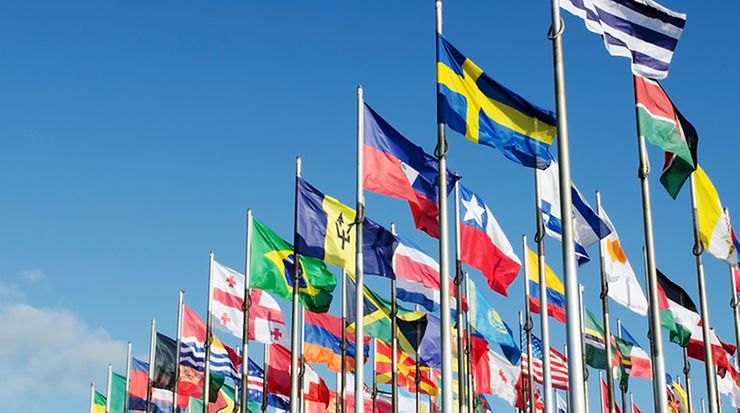DIN and international standardization
International standardization

International Standards create a common technical language trade partners can use worldwide, providing a framework for the global market. They open up access to new markets and promote a free - and fair - world trade.
Germany recognized the importance of standardization for international trade early on: DIN has been a full ISO member since 1951. Today, ISO has over 160 members. Because DIN is a permanent member of ISO's steering bodies, it is able to play an active part in determining strategic directions in international standardization.
In addition to regular attendance of the annual ISO General Assembly, DIN has a permanent seat on the ISO Council (which governs the operations of ISO) and on the ISO Technical Management Board (TMB). The TMB is responsible for the general management of the technical committee structure, and the strategic planning, coordination, performance, and monitoring of technical committee activities. DIN also represents German interests by participating in a great many of ISO's working groups.
National committees within DIN "mirror" work at international level by developing the national position and sending experts to ISO to represent this position. In addition, DIN holds a large number of secretariats of ISO committees and working groups - a great responsibility that brings with it the opportunity to have a great influence.
International Standards are also developed by IEC, the International Electrotechnical Commission (for electrotechnical standardization) and the International Telecommunication Union (ITU) (for telecommunications standardization).